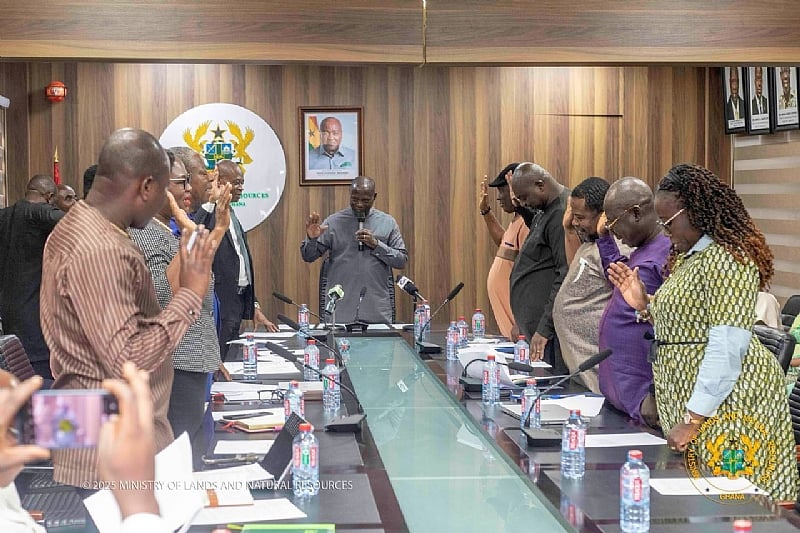The Ghanaian government, under the leadership of Mr. Emmanuel Armah-Kofi Buah, the Minister of Lands and Natural Resources, has taken a decisive step towards reforming its small-scale mining sector. The inauguration of a nine-member Small-Scale Mining License Review Committee signals a commitment to address the complex challenges plaguing this vital economic sector, including illegal mining activities, environmental degradation, and revenue leakages. The committee’s mandate is broad, encompassing a comprehensive audit of all existing small-scale mining licenses to verify their legitimacy and compliance with existing regulations. This initiative aims to sanitize the sector, improve transparency, and optimize the benefits accruing to the nation from its mineral resources. The committee is expected to complete its review and submit a comprehensive report by June of this year.
The committee, chaired by Deputy Minister of Lands and Natural Resources, Mr. Sulemana Yusif, comprises experts drawn from various relevant government agencies and industry stakeholders. This multi-disciplinary approach reflects the government’s recognition of the interconnectedness of the issues surrounding small-scale mining. The committee’s membership includes representatives from the Ministry of Environment, Science, Technology & Innovation, the Minerals Commission, the Environmental Protection Agency (EPA), the Water Resources Commission, the Forestry Commission, the Office of the Attorney General, the Association of Small-Scale Miners, and the Ghana Chamber of Mines. This diverse representation aims to ensure a holistic review process that considers legal, environmental, financial, and social implications of small-scale mining operations.
The primary objective of the license review is to identify and rectify any irregularities within the licensing regime. The committee’s scrutiny will focus on several key areas, including due process in license acquisition, adherence to environmental standards related to water bodies, forest reserves, and land preservation, and full payment of all required licensing fees. By ensuring compliance with these critical requirements, the government aims to curb illegal mining activities, protect the environment, and maximize revenue generation from the sector. The review also aims to enhance transparency and accountability, thereby boosting investor confidence and fostering a more sustainable and regulated small-scale mining industry.
The Minister, during the inauguration ceremony, emphasized the critical role the committee plays in the government’s broader strategy to transform the small-scale mining sector. He stressed the importance of their work in exposing irregularities, restoring confidence, and ensuring that Ghana derives the maximum benefits from its mineral resources. Acknowledging the ambitious two-month timeline set for the review, the Minister expressed his willingness to extend the deadline if necessary to ensure a thorough and comprehensive assessment. This demonstrates the government’s commitment to a meticulous process that prioritizes accuracy and thoroughness over speed.
Mr. Sulemana Yusif, Chairman of the committee, accepted the responsibility with a pledge of rigorous and impartial scrutiny within the stipulated timeframe. He acknowledged the significant trust placed in the committee and assured stakeholders of a transparent process that would foster greater investor confidence. Recognizing the need for cooperation from license holders, he urged their full participation to facilitate the review and contribute to the success of the initiative. This collaborative approach between the government and stakeholders is crucial for achieving the desired outcomes and creating a more sustainable and beneficial small-scale mining sector.
The establishment of the Small-Scale Mining License Review Committee marks a pivotal step in Ghana’s ongoing efforts to regulate the small-scale mining sector and combat illegal operations. This initiative aligns with the government’s broader commitment to sustainable development and responsible resource management. By ensuring that small-scale mining activities are conducted in compliance with legal and environmental regulations, the government aims to generate economic benefits while safeguarding the environment and promoting the well-being of communities affected by mining operations. The success of this initiative will depend on effective implementation, stakeholder cooperation, and ongoing monitoring to ensure long-term sustainability and responsible practices within the small-scale mining sector.














